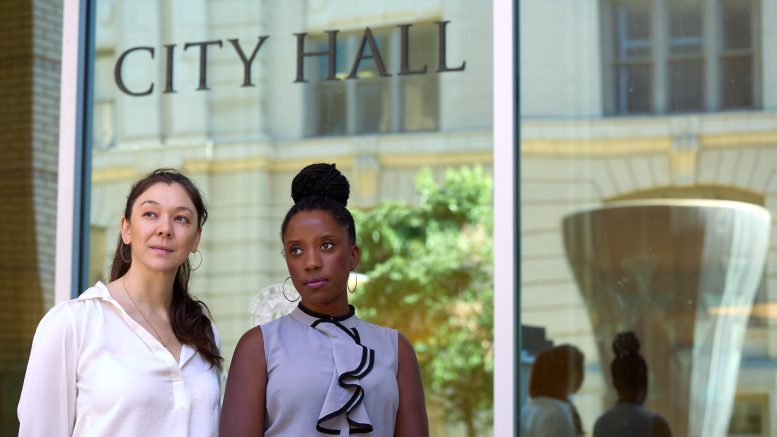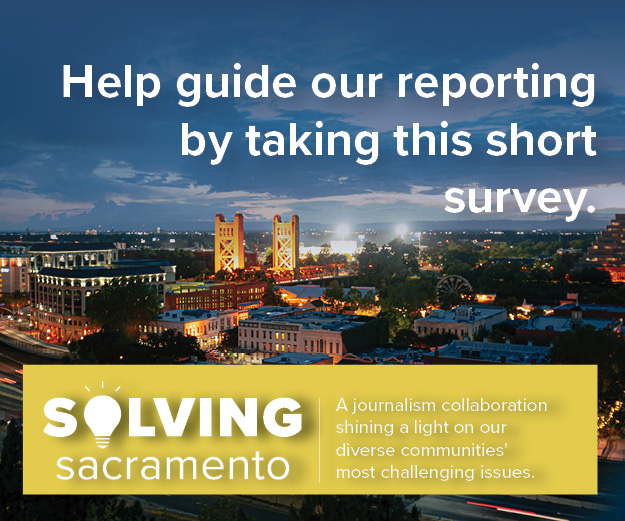By Rachel Leibrock
With the help of a new grant, the City of Sacramento aims to address historical economic disadvantages for people of color, particularly Black communities. Racist policies such as redlining — the decades-long practice of mortgage lenders of drawing red lines around portions of a map meant to exclude neighborhoods from loans — or the Homestead Act of 1862, which benefited millions more white than Black families, have made it difficult, if not nearly impossible, for many Black families to grow and sustain solid financial standing and generational wealth.
In April, Sacramento was one of eight cities nationwide awarded $75,000 to participate in the CityStart initiative with Cities for Financial Empowerment Fund. The grant allocates the city planning dollars and technical assistance to identify strategies that will financially empower residents, with a focus on racial wealth equity in the Black community.
The grant’s end point will be a publicly released blueprint that lays out an actionable strategic plan around government-led financial empowerment.
Lynette Hall, community engagement manager for the City of Sacramento and part of the team tasked with implementing the grant, calls it an opportunity to answer an increasingly urgent question: How can the city undo decades of historical inequities?
Banking, for example, is a prime focus for change, she says. In recent years, major banks have launched programs meant to address such equity gaps. In 2019, for example, JPMorgan Chase bank introduced a $30 million program, Advancing Black Pathways, which strives to empower the Black community to develop job skills and join or re-enter the workforce.
Such opportunities are needed at the local level, Hall says.
“How do we start having those conversations and build something on a smaller scale that targets these communities?” she says. “We need to figure out how we right those wrongs.”
Blocks, boosts and an equity reckoning
Since 2015, the CFE Fund’s CityStart initiative has worked with 40 cities; in 2021, with support from Bloomberg Philanthropies’ Greenwood Initiative, the group added a specific racial wealth equity focus to the initiative. Sacramento is in the program’s second cohort focusing on racial wealth equity, along with cities such as Baltimore, Maryland; Cleveland, OH; and Monroe, LA.
Earlier this year, Hall and her colleagues visited New York to take part in a series of sessions designed to provide training and technical assistance. Leaders from the CFE Fund also conducted a site visit to Sacramento, where they toured various regions and met with local experts and organizers.
Now, Hall says, they’re in a discovery phase to identify challenges and solutions unique to Sacramento. In June, they held a series of meetings with community leaders focused on three primary areas: banking, housing and workforce development. From those meetings a committee comprising advisers from each group was formed.
“The people in these meetings saw the synergy and realized how important it would be to meet on a regular basis,” she says. “This is a heavy conversation to have one time in a couple of hours. It needs to be ongoing.”
The group will also hire a consultant to pull data examining where Blacks have historically resided in Sacramento.
“(We’ll examine) some of the drivers that shifted where they’ve been located,” Hall says. “That’s changed a lot just over the last five or 10 years.”
One of Sacramento’s unique challenges, Hall says, is that unlike many other major cities, it doesn’t have a historically Black neighborhood upon which to focus efforts. While many locals may think of Oak Park as such a locale, the region’s Black residents aren’t concentrated in one area.
The work ahead is substantial and necessary in the wake of the United States Supreme Court’s recent ruling, which effectively ended race-conscious admission programs at colleges and universities across the country.
The decision is just one of the latest obstacles to financial empowerment for Black people, says Hall, joining other hurdles such as California’s Proposition 209, enacted in 1996, which ended state affirmative action programs in education, public employment and government contracting.
As part of the initiative, the CityStart cohort is studying historical “blocks,” such as Jim Crow laws and the Federal Housing Act of 1934 that implemented redlining, creating barriers for economic equity over time. The group is also evaluating “boosts” such as the1964 Civil Rights Act and the 1977 Community Reinvestment Act, a federal law meant to encourage commercial lenders to meet the needs of all potential borrowers, including low- and moderate-income neighborhoods.
An eye toward the future
Kelly Fong Rivas, racial equity adviser to Mayor Darrell Steinberg, and part of the CityStart cohort, says by examining these blocks and boosts, the group can guide itself through a historical documentation of the past with an eye toward the future.
“We’re working with the community to do a deep dive into (understanding) what some of these first key barriers are that we can start to unwind, as well as potential boosts we can invest in that will make a difference,” Rivas says. “It’s a collective community response, which was one pillar of this grant that was appealing because it centered the community in the process. We’re not going to develop anything without that intimate feedback and engagement.”
The grant’s outcomes may include workplace training programs as well as working with lenders to ease credit access for Black community members, not just for initial mortgages but to also build accessory dwelling units, which will increase the value of their homes.
Katie Plat, senior principal with the CFE Fund, says the grant’s effectiveness will be evaluated through the city’s blueprint.
“The real way to measure success is to see if the city is implementing those (goals) … and how it’s leveraging its infrastructure, programs and funding,” Plat says. “It’s (evaluating) whether the city is committing to embedding financial empowerment and racial wealth equity into the work that they’re doing.”
Hall acknowledges the grant doesn’t make for an easy fix for issues rooted in centuries-old biases and injustices. Its outcomes, she says, are also dependent on community engagement and education.
“Often, people confuse equity and equality, and we want to ensure that folks know the difference and that there are marginalized groups that need more assistance,” Hall says. “Because of systemic racism, a lot of this (inequity) was intentional, so if we’re not intentional about addressing the causes, it would defeat the purpose. This initiative gives us an opportunity to be specific about who we’re targeting and why.”
Success, she says, will require dismantling harmful systemic practices and fostering new connections.
“Ultimately, we’re creating something tangible that we cannot only act on but use to try to build trust within our communities and neighborhoods.”
This story is part of the Solving Sacramento journalism collaborative. Solving Sacramento is supported by funding from the James Irvine Foundation and Solutions Journalism Network. Our partners include California Groundbreakers, Capital Public Radio, Outword, Russian America Media, Sacramento Business Journal, Sacramento News & Review, Sacramento Observer and Univision 19.



Not mentioned in this article is that the city, along with co-conspirator the state, erased most of the low income housing in Sacramento through redevelopment. So long as there is a huge and continuing deficit of affordable housing, Blacks and other discriminated against people will not be able to advance. The city and state need to replace, at their expense, the housing that was erased.